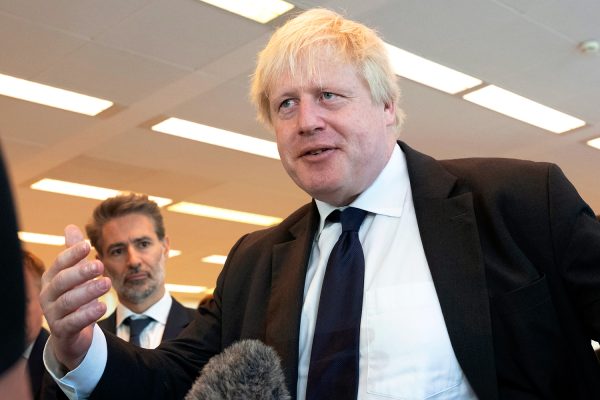
It’s been seventeen months since the Brexit talks began and, judging by their recent commentary, including Boris Johnson’s latest column in The Telegraph, the Brexiteers are still laboring under delusions about the outcome.
So let’s be blunt.
This is not a negotiation
The two sides have different perceptions of what’s going on.
Britain believes it is negotiating. It is playing poker and thinks it can bluff its way out of a rotten deal.
For the EU, this is a legal process and the objective is to contain the damage of Brexit as much as possible.
The EU will not compromise. It warned as much before the Brexit referendum and it has maintained that line since.
The likes of Johnson pretend (I write “pretend” because I suspect they know better) that if only Britain thumps its chest and roars loudly enough, the bureaucrats in Brussels will relent. Or, if they don’t, that Britain can go over their heads and appeal to national leaders, who would be more amicable to a deal.
It’s not going to happen. Michel Barnier, the EU’s Brexit negotiator, has a clear mandate from government leaders that is not going to change.
No more favors
Nobody in Europe is going to do Britain favors anymore.
From the moment it joined what is now the EU, the United Kingdom has been frustrating the process of European federalization.
- It demanded that European countries prioritize economic over political union, and they did. (Liberals like myself prized British membership for that very reason.)
- It demanded opt-outs from the euro, from European security policy and from the Schengen free-travel area, which it got.
- When David Cameron asked for additional concessions, including the formalization of a two-speed Europe, in a bid to avoid Brexit, other leaders gave it to him.
Now that Britain is leaving anyway, it has the temerity to ask the EU to change its ways again.
What it wants is the best of both worlds: membership of the European customs union and single market without paying into the EU budget, without respecting EU regulations it doesn’t like and without accepting EU immigration.
The Europeans call this “cherry-picking”, but it is what Johnson and other Brexiteers have told the British people is achievable.
It is not. They lied. They are still lying. What they are proposing would unravel the European Union as we know it.
Two likely outcomes
There are only two likely outcomes, and I’ve argued as much for two years:
- A “hard” Brexit, under which Britain defaults to WTO trade terms with the EU.
- A Norway-style deal, under which Britain accepts some free movement of people in return for continued access to (not membership of) the single market.
The first scenario would wreck havoc to supply chains, disrupt everything from air traffic to cancer treatments, leave EU nationals in Britain as well as British nationals in Europe in the lurch and it would see the return of a hard border between Northern Ireland and the Republic of Ireland where the absence of one has helped keep the peace for twenty years.
The second scenario would wound the pride of British nationalists.
Good news and bad news
The good news is that, despite the rhetoric, Britain has already given in on a number of issues:
- It has agreed to work out the terms of Brexit before negotiating a future trade deal.
- It has agreed to pay an exit bill.
- It has agreed to keep Northern Ireland in regulatory alignment with the EU.
- It has agreed to a transition period of a year and a half, during which EU rules and regulations will continue to apply.
The bad news is that the Brexiteers are calling some of these concessions into question again and are laying the groundworks for a “Brexit was never tried properly” campaign.
If that reminds you of diehard communists who insist that “real” communism has never been tried, it should. Brexiteers believe in utopia too.
